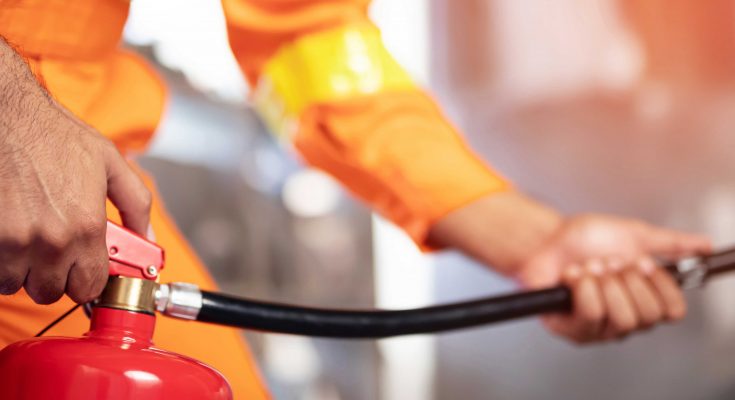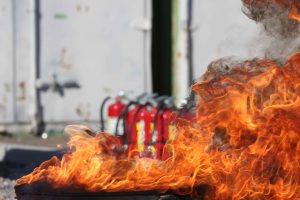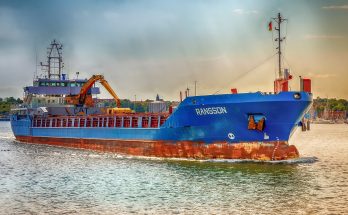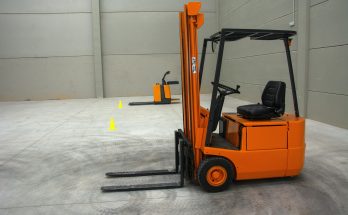Domestic fire extinguishers provide you with a fire protection plan in your home, car or work. A fire extinguisher is a first air response to fires, and it is essential in preventing property damage and death. As a property or business owner, you are required by law to have effective firefighting equipment on your premises. Furthermore, you must ensure regular inspection and maintenance of the fire extinguishers.
Top Reasons for Having Fire Extinguishers
If an incident occurs in your business or home, you need a domestic fire extinguisher on-site to prevent small fires. Life Safety Online supply a wide range of domestic fire extinguishers and can give the right advice as to what you need. Fire prevention means that nothing ends up in a four-alarm blaze. However, do you know the essence of fire extinguishers? Below are a few reasons why you will need fire extinguishers within your home or business.
Saving Lives
It’s evident the effect these extinguishers have during a fire emergency. Having a fire extinguisher in your property helps save lives because the fires never get to escalate. When it goes beyond control you might get yourself paying for neighbours’ property. Thus, it saves more lives than one can imagine until fire comes up. Furthermore, the extinguisher can easily confine any spread of fire. It saves lives, especially if you reside in areas where there are lots of people. In most cases, it starts as an accident and with a fire extinguisher, you can really save many lives including yours and your family.
Preventing Fire Escalation
Fire extinguishers can help stop flames from growing out of control. These devices can stop around 80% of fires, thus ensuring that no property ends up damaged. Many fires that necessitate the fire department’s presence can be resolved if a fire extinguisher is available. Negating escalation ensures that your building and appliances can be intact. When fire escalates it takes a lot of time and it may cause more damage that will cost more than that of a domestic fire extinguisher.
Environment Protection
Having an uncontrolled fire can also be harmful to the environment. Fires release carbon and greenhouse gases into the atmosphere. Extinguishing fires can help prevent such damage to the environment. Using an extinguisher can help negate the spread of fire and pollutants. Furthermore, this can save water that the firefighters would have used to extinguish the blaze.
Types of Fires and Fire Extinguishers
There are different types of domestic fire extinguishers because of the different classes of fire. For a business or a home, you are responsible for your safety and those around you. Therefore, you ought to be prepared for emergencies and accidents like fires. You have to put up all the precautions to make sure all that you have are safe. Fires are never planned therefore you have to be fully prepared and also know how to do it yourself before calling professionals who have more equipment. Having a fire extinguisher on site helps you maintain the best safety precautions. The different types of fires include:
- Class A fires – These fires involve normal combustible materials. The common accelerants for these fires include plastics, cloths, rubber, trash, fabric, paper and wood. For these fires, a water fire extinguisher will work best. You can also use a dry chemical or foam fire extinguisher.
- Class B fires – These fires depend on flammable liquids as their source of fuel. Some of these liquids include paints, gasoline, kerosene and petroleum-based oils. These types of fires are prevalent in industries that have chemical reactions or processes. The best extinguishers to use are foam or dry powder extinguishers. They are great for flammable liquid fires.
- Class C fires – These fires involve flammable gases like LPG gases, butane, methane and propane. These gases are common in chemical plants and warehouses. The best fire extinguisher for these gases is C02 and dry powder extinguishers.
- Class D fires – These fires include combustible metals like potassium, lithium, sodium, zirconium and magnesium as their fuel source. These metals are common in laboratories and the best extinguisher to use is a dry powder extinguisher.
- Class E fires – These fires involve energized electrical equipment. Electronic transformers, appliances and motors can fuel the fire. The best extinguishers for these fires are either C02 or dry chemical powder extinguishers.
How to Use a Fire Extinguisher
The main thing to remember when using a fire extinguisher is PASS. This stands for:
- Pull the pin (Remember to point the nozzle away from you when releasing the locking mechanism)
- Aim low (Point the fire extinguisher at the fire)
- Squeeze the lever evenly and slowly
- Sweep the nozzle



